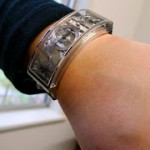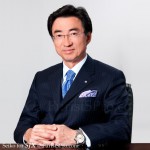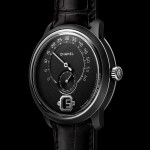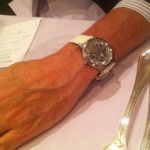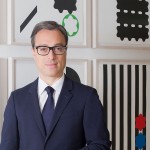Interview: Raymond Loretan, President of GPHG
Patiently building a universal competition.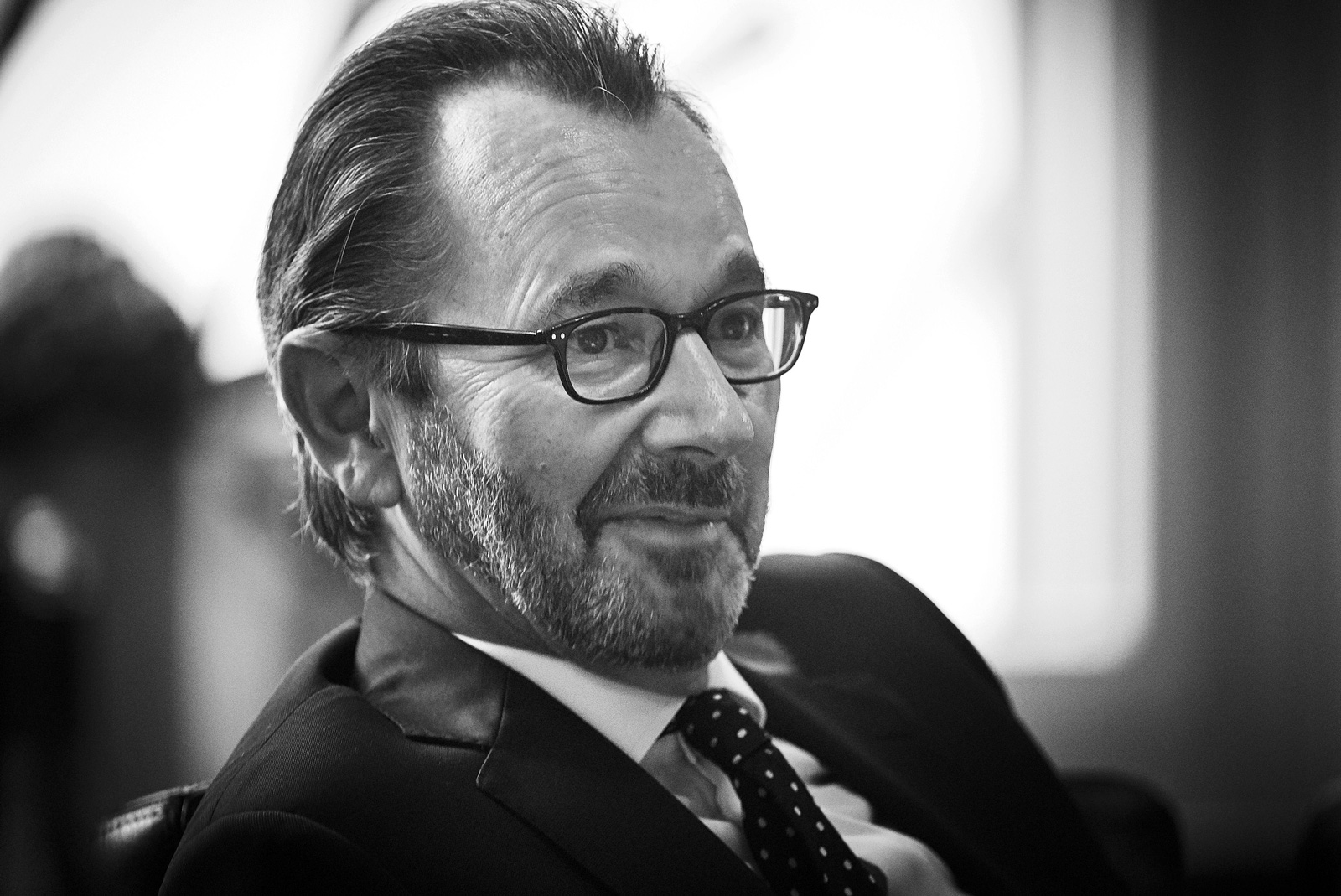
A member of Switzerland’s diplomatic corps for some two decades – he was the Swiss Consul General in New York City until 2007 – Raymond Loretan was tapped to become the President of the Grand Prix d’Horlogerie de Genève (GPHG) in 2018.
Just before the 2021 awards ceremony took place in Geneva, we sat down with Mr Loretan to get his thoughts on how the GPHG has evolved and where it is going.
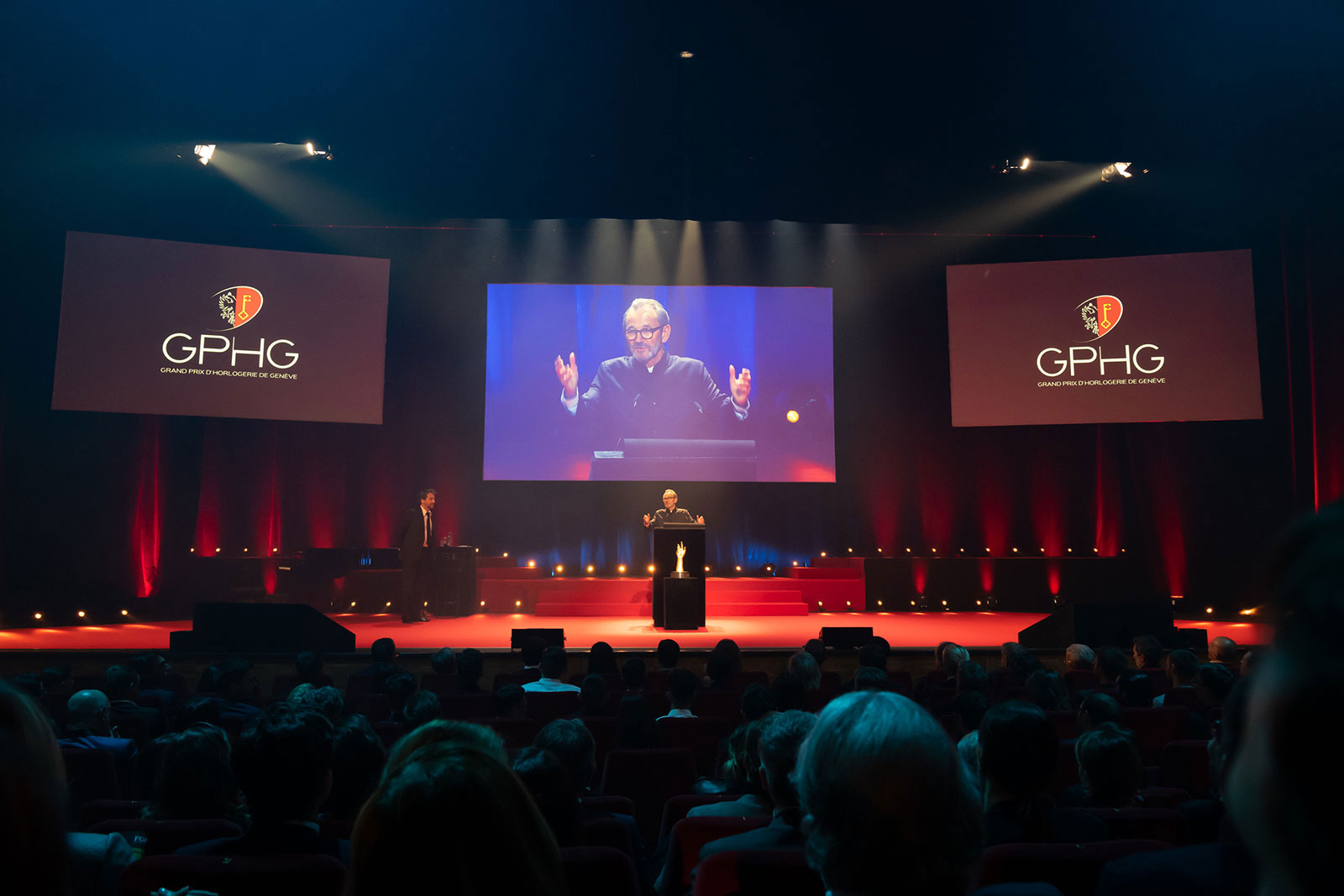
Raymond Loretan making the opening speech at the 2021 GPHG ceremony. Photo – GPHG
Benjamin Teisseire: You have overseen profound changes at the GPHG since you took over as president in 2018. Is everything going as planned?
Raymond Loretan: So far yes. We created the Academy last year and it represents a big change in paradigm for the Grand Prix. It worked well with the 350 members but with some glitches, which we have now learned from.
This year, it worked even more smoothly with over 500 members of the Academy. No technical issues with the digital platforms and academicians were involved at all stages in the selection process.
But the goal is to double this number of academicians in the next two to three years. That’s because it is the way to assert the three principles on which the Grand Prix is built.
First of all is the Neutrality that has been questioned in the past. With this new way of working, this important pillar will be guaranteed.
The second one is Universality. The more people coming from all over the world, the better this diversity will be represented. And it will show that we are open to everyone and will increase our visibility.
The third principle is Solidarity. It means that brands need to understand that by entering the Grand Prix and supporting it, they show their support to the industry as a whole. This will of course take time.
BT: As transparency is paramount in such a contest, can you explain how the selection and voting processes take place? How are the watches selected in the first place, then for the final preselection?
RL: We are very transparent and explain everything on our website where the rules are shown. We revise them every year to improve them.
Basically, all academicians can propose any watch. Brands can also decide to present their watches directly. The fee to enter the GPHG competition at this point is CHF600 per watch. We ended up with more than two hundred this year.
Then we go into the selection of the 84 watches that will go into the 14 predetermined categories. It is done through a vote of the academy. There is another fee of CHF 6,000 to partake at this stage. This offers the opportunity to be part of the GPHG international roadshow, which is a great promotional tool.
Then the final jury comes into play. The jury is composed of 15 persons designated randomly, in a process supervised by a notary, from among the Academy members and another 15 selected by the chairman of the jury and the council of the GPHG. They vote on the winners for each category.

The winner of this year’s Petite Aiguille, the Tudor Black Bay Ceramic
BT: Then how are the votes weighed between the academy and the jury to determine the winners?
RL: This year, the votes were weighted as follows: 15 votes from the Academy of 500 members, and 30 from the jury of 15 members. Because the jury is the only group who actually got to see and feel the watches in order to evaluate them, they have an important responsibility. In that sense, they have to have a greater weight. We are still fine tuning the process here, but it seems to have worked really well this year. Everyone votes secretly, under oath.
BT: The jury underwent a major change this year, with a new president appointed as well as many new faces who have not been jurors in the past. What does this evolution imply for the GPHG?
RL: First we are happy to see new and younger faces. We also try to have a gender balance, but we cannot really influence this.
Each year we will evaluate how the process went. But for sure, we will change the jury every year. That is a guarantee of our first two principles of neutrality and universality.
We are still discussing whether to we keep the chairman for one or several years. It is a very pragmatic process.
At the same time, we will see if we need to change the vote balance between the Academy and the jury. Doubling the size of the Academy is also a dynamic process where current members co-opt new ones. It takes time to ensure that all members are fit for their duty. Every year we evaluate what was done right and what needs to be improved. It will take time to consolidate what we are building.

Winner of the 2021 Innovation Prize, Bernhard Lederer. Photo – GPHG
BT: The GPHG is often compared to the Oscars but does not quite have the media coverage of the latter. What do you think is needed to truly become the Oscars of watchmaking?
RL: I think a larger base of academicians is key because they are really the ambassadors of the Grand Prix. So the larger it is, the wider the reach will be. We are well known within the industry but quite unknown in the general public, even in Switzerland.
But what I have noticed is that the interest towards watchmaking is high even if the knowledge is quite low. I believe we have a lot to do on the communication side once strong foundations are established. But our financial means are limited. I think that we do a pretty good job with what we have, but definitely more communication with a non-watchmaking audience is our next challenge.
BT: Still the GPHG is a major event on the watchmaking calendar with almost all major watch brands participating, though there are a few notable exceptions like Patek Philippe or Rolex. What are your thoughts on that?
RL: Patek Philippe has won the Grand Prix in the past so they did participate in the past. Rolex is present through their sister brand, Tudor.
But I think that implementing our three basic principles of Neutrality, Universality and Solidarity will make more and more brands conscious of the need to be part of the Grand Prix. It takes time to convince the reluctant, but I believe we are on the right path.

The Patek Philippe ref. 5959P, which won the Complicated Watch Prize at the 2005 GPHG
BT: With your experience as a seasoned diplomat you are well equipped to navigate the often choppy waters of watchmaking and the big luxury groups that dominate. Do you think deeper collaboration amongst them is needed? And possible?
RL: The message I am trying to bring through is clear: the more we are pushing our three principles, the more we will become a legitimate, federative promotion tool for the whole industry. We are ready to play this role if requested. We have no hidden agenda, we are here to promote the industry at large.
BT: What would you like to see in the future?
RL: In five years I would like to see the GPHG recognised as a universal competition and the Oscars of watches.
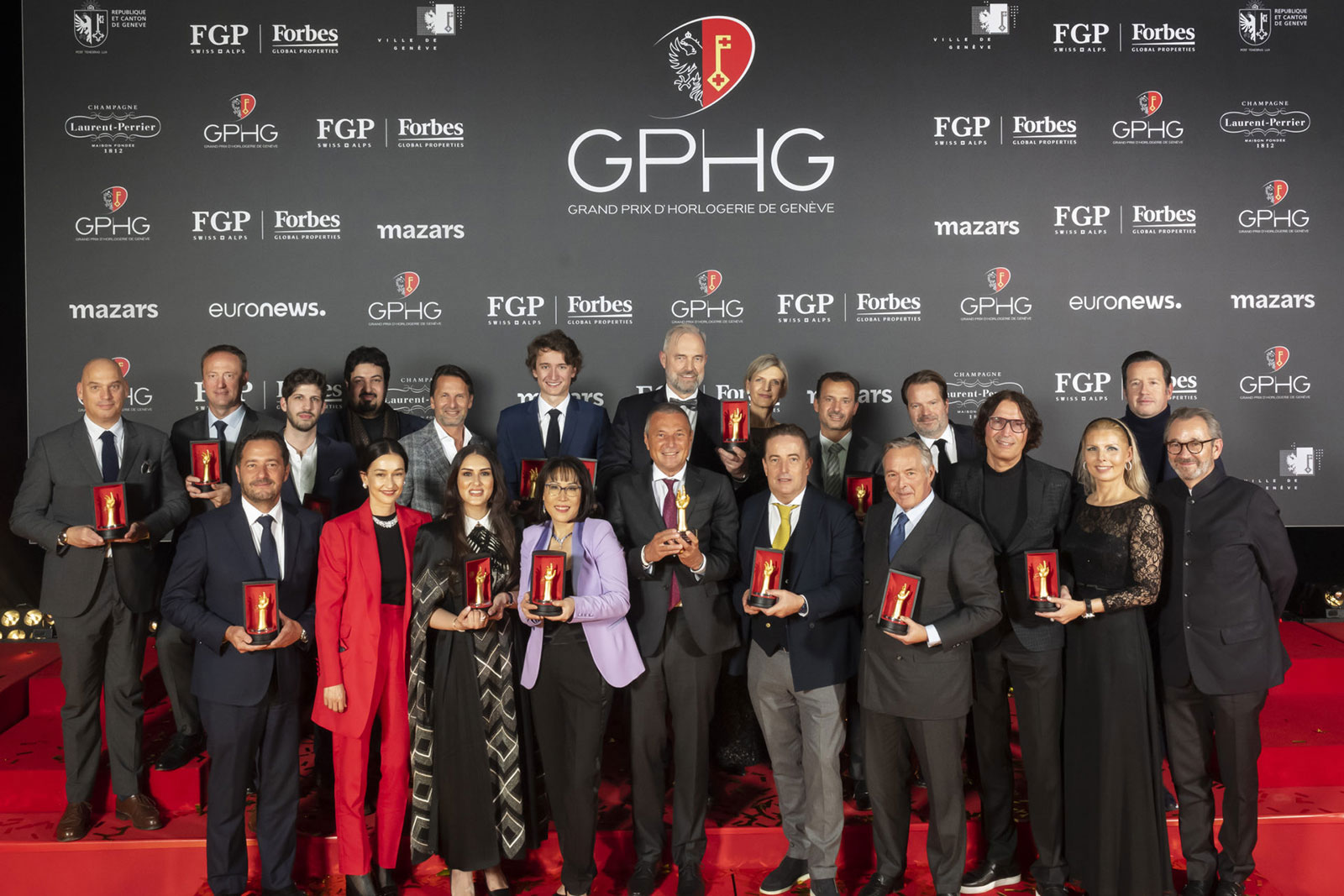
The 2021 winners along with Raymond Loretan (first row, extreme right), and GPHG Director Carine Maillard (first row, second from left). Photo – GPHG
BT: Finally, last year was a tough one for the GPHG, as it was for everyone. The awards ceremony was virtual and closed to the public. How do you feel about this year’s show? What are your expectations?
RL: We feel great about this year’s show. We are very happy and can see that everybody feels the same. We had a full house of people excited to come back together to celebrate an industry that is much more that just that.
BT: Thank you Mr Loretan for your time and straightforward answers.
